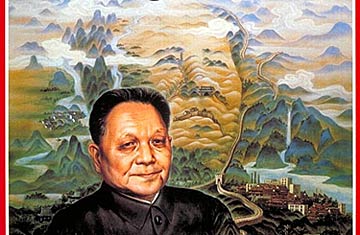
(20 of 20)
So one returns from China, as one first arrived there long ago, hopeful yet fearful. Memory recalls most sharply not the old China of 1939 but the first night of this 1983 visit.
That first night, when Wang Bingnan offered me his banquet of return, another old friend joined us on Fragrant Hill — Qiao Guanhua. Qiao and I had been friends in our youth, when he was a fiery left-wing journalist. Later, as Foreign Minister of China, he and Henry Kissinger worked out the landmark "Shanghai Communique" of 1972, in which America recognized that Taiwan was part of China, but insisted on a "peaceful" solution. Qiao Guanhua had gone on with Mao to the end; he was released from house arrest by the new regime only last year; his wife, suspect because she had been close to Jiang Qing, had been under house arrest with him.
This night Qiao Guanhua would not let himself be cornered on his stewardship of Chinese foreign policy under Mao; nor on his arrest after Mao's death; nor on the Cultural Revolution. I pressed him on what had gone wrong in China since our youth and his triumphant career; he dodged. When I finally pressed, deeply and hard, on the transition, he elegantly replied, "You must remember what Hegel said, that a man reaches an understanding of the history of his own time step by step — only step by step."
Qiao Guanhua was ill when I met him, a scarf wrapped around his throat. He was in the hospital when I left. I do not think I will ever see him again. But I remember his words, "step by step." Which is the way that both we and the Chinese must go through this passage of history. No "ultimate solutions" are possible, either for the Chinese or ourselves; but "step by step" we may get there.
* American figures show that goods of Chinese origin totaled 0.9% of all U.S. imports. The Chinese do not include in their figures goods transshipped through Hong Kong for reexport to the U.S.
